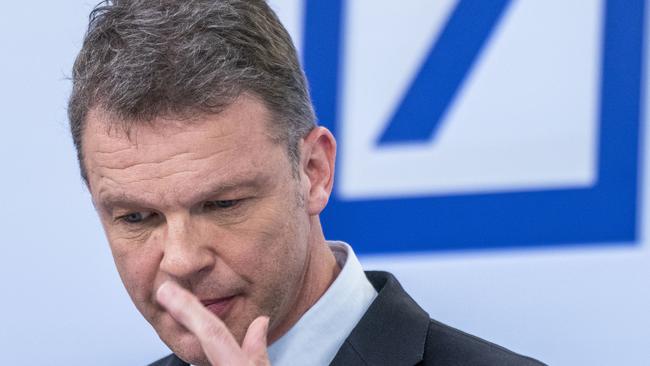
- Should I get out of the sharemarket now while there is still some value?
- Will home prices follow the sharemarket down?
- Can Josh Frydenberg avoid a recession?
Should I get out?
Question one: When markets are in free fall picking the bottom is an impossible task, but if you are highly leveraged then you may have no choice but to sell.
But unless you have to get out or want to trade the fall, I am in favour of riding it out. This particularly applies to superannuation.
The two biggest forces driving the market lower are coronavirus and the oil chaos.
The damage created in the economy by the virus is already severe in areas surrounding tourism and education. But it will widen and become catastrophic if major cities go through the experience that is now hitting Italy.
But as we are seeing in China, if you have the will to contain the virus you come out the other end. However do not underestimate the fear that will be created in communities.
Similarly, with the oil war. The big players – the US, Russia and Saudi – are all shooting themselves in the foot and face major damage if the price war continues. That’s why I think there will be a truce.
In other words, the two forces that are shoving the market down have a likely end game. But what really frightens me is the fall in bank shares.
At the close of trading. In New York and before the Australian opening, I froze a moment in time to compare global bank shares. In Europe, Germany’s largest bank, Deutsche, closed 43 per cent below its peak price for the year. We have known for a long time that Deutsche has deep problems but that’s a huge fall.
But in the UK the 39 per cent fall in Barclay’s from its peak price is not far behind. And across the Atlantic we find that in New York Citi is down 38 per cent including a sickening 16 per cent fall last night.
Here in Australia CBA was only down 24 per cent from peak at the New York close, but is now below the $71.50 placement price back in 2015. But the other big banks have been battered in line with world trends with falls of at least 31 per cent and 35 per cent in Westpac’s case.
Banks are at the core of world economies and when they suffer such big falls it has long-lasting effects. So, in holding on I reckon I will be able to ride the virus and the oil war, but my deep fear is the global banking system.
What about house prices?
Question two, house prices. I have been writing regularly that a 15 to 20 per cent fall in the share market endangers dwelling prices – particularly the more expensive dwellings and those in tourist areas. The share market has now fallen 20 per cent so dwelling prices are in danger. Usually it takes between six to 12 months for the residential property market to crack but it can take up to 18 months. Because capital often swings to bricks and mortar, after a share fall, sometimes property initially actually rises But longer term, the two markets are governed by similar forces.
I suspect that this time the downward price flow on to property will be quicker, because the virus confidence flow in affects people much faster than, say, a credit squeeze. .
But if the virus becomes manageable and there is a truce in the oil price war then the share market will recover part of the lost ground. In simple terms, normally the forces that bring down sharemarkets also bring down property prices. The same will apply to a virus / oil driven market if these two forces stay with us for an extended period. .
And remember the role of banks in the community is important. So the fall in bank shares is the greatest long-term danger. I also add a long-term alert: there is a shortage of housing and we may have an avalanche of Chinese capital when the crisis is over.
Is recession avoidable?
Finally, can Josh Frydenberg save us from a recession?
It’s highly unlikely. The combination of downward forces is simply too great. Some of our Queensland gas projects are in trouble; our mineral exports are being hit; retail sales are falling; tourism has slumped. And on it goes.
What the treasurer can do is cushion the blows and enable many smaller enterprises to survive. So I will not judge him on the basis of whether he avoids a recession. So what is my yardstick? I will give two initial criteria. First, has he been nobbled by the large companies who have been delaying payment to smaller enterprises? It’s a sick sport for many. And second, our education sector is in deep danger. He must match Boris Johnson in the UK with more liberal visa rules. Such strategic moves will show us that he has his ear to the ground and is not just listening to public servants and mates.







After the initial shock of the share market collapse all Australians will be asking three questions: